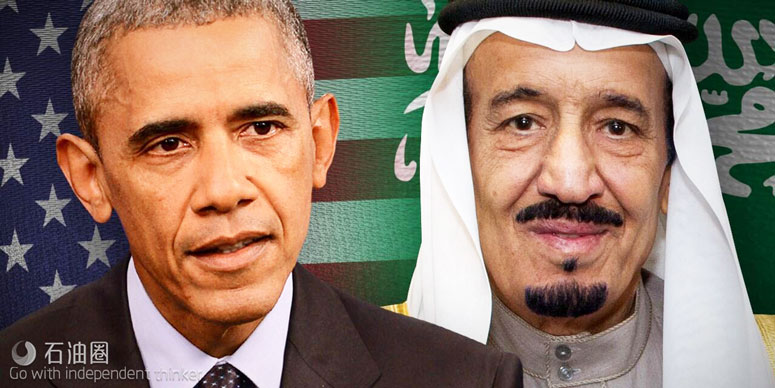“I believe we are about to see the market price fall to, and possibly well through, $35 to $40 per barrel,” Cook tells the Tehran Times.
This is the text of the interview:
Tehran Times – Welcome back to Tehran Times, Mr. Cook. It’s been a while since we discussed energy markets?
Cook: – Indeed so. I have been painfully coming to understand that advising any nation, company or organisation to change from within is doomed to failure and that change can only come from outside.
TT: There are indeed great changes everywhere we look: in the U.S. we see President Trump and in the EU we see the UK Brexit. What’s your view of the global market?
Cook: Firstly, I agree with Yamani’s view that the Stone Age did not end for lack of stones and that the oil age is not ending for lack of oil. Increasing energy cost of extraction of fossil fuels has led to prices now encouraging substitution by renewable energy and by what ExxonMobil calls the Fifth Fuel – energy efficiency.
TT: So the more expensive oil and gas become in dollars the profitable it is to save them?
Cook: Indeed so. I conceive of the Fifth Fuel as intellectual value: firstly, the value of know-how and know who which resides between our ears, and secondly, the value of concepts, and the knowledge and wisdom to develop them, which are recorded for future generations.
TT: In that context, what is your view of the future oil market?
Cook: In the short term, a period of market price support by the Obama administration funded by Saudi Arabia has come to an end, and I believe we are about to see the market price fall to, and possibly well through, $35 to $40 per barrel. After that, production will be cut back, and the price will rise again: boom and bust are hard-wired into the current market paradigm.
TT: Why would Obama have supported the price? And why would the Saudis have funded it?
Cook: As it is said, the cure for high prices is….high prices. For Obama, the Saudis had become an embarrassment and the U.S. created an oil price bubble – funded by existing Saudi petrodollars – which enabled the U.S. to deploy the new petrodollars created by the high prices to finance the creation of the U.S. shale industry and enable the recalibration of their relationship with the Saudis who were blissfully unaware of a very smart U.S. strategy.
TT: Are you saying that U.S. shale industry is essentially a strategic petroleum reserve?
Cook: Indeed so, and moreover it is a reserve which operates automatically through the operation of the market.
TT: So the more successful OPEC and NOPEC are in cooperating to cut production and raise prices, the quicker the financial energy market will enable U.S. shale production to fill the vacuum created?
Cook: Precisely. The global market is terminally broken, and energy producers and consumers can and will make new complementary arrangements outside this broken market.
TT: Do you have in mind the Saudi strategy of securing demand by acquiring overseas refineries?
Cook: I don’t recommend ownership of a physical asset with political risk of nationalisation or sanctions; environmental risks & costs of remediation or economic risks such as industrial relations problems. However, I do believe that a long term supply partnership agreement – an oil for product swap – is an excellent idea since it secures supply for the refiner and demand for the producer.
I would observe in passing that Saudi’s U.S. refining infrastructure has enabled them to bypass OPEC cuts by refining crude oil inventory stored in the U.S.
TT: In other words, you believe the Saudis have been ‘pre-cheating’? That is fascinating if true. Perhaps we may turn now to Iran’s domestic energy policy. What would you recommend to Iran’s new president when he takes office in May?
Cook: Whoever wins will suffer from the same economic problems faced by Trump in the U.S. and the UK post-Brexit. Reformists advocating rejoining the broken dollar and euro financial systems provide no sustainable answers, while those advocating a resistance economy will see that domestic financial institutions based on the Western model – and with no external assistance – will have no better outcome.
TT: So what complementary policies do you advocate?
Cook: Firstly, I believe that Dr Shams Ardakani – for whom I have great respect – and I agree that Iran’s energy policy should follow an over-riding mandate or organising principle of ‘least resource cost’. In simple terms, for any given use of energy as a service- heat/cooling, transport, power and so on – Iran should minimise the use of finite resources such as oil, gas and water.
Of course, this is impossible within the Western model of debt financing and profit maximising owners and middlemen. However, we advocate the use of production sharing swaps – such as gas for power; or fuel for transport – which opens up new possibilities especially when combined with funding by investment in prepaid production.
TT: This is the Scandinavian approach to energy policy, I believe but rather different financially?
Cook: In terms of energy policy, yes. So Norway – which produces a great deal of oil – has some of the highest energy prices in the world, but created a massive sovereign wealth fund for future generations while conserving domestic use of a valuable resource. Meanwhile, Denmark, with very little oil, nevertheless thrived for 40 years while reducing reliance on fossil fuels significantly. As you will observe, the financing and funding approach we propose is rather different, being based upon risk & revenue sharing structures and instruments which have deep roots in Iran.
TT: So in terms of practical policy recommendations?
Cook. Firstly, Iran must act to increase energy prices through an energy levy on fossil fuels and renewable energy thus creating an energy pool fund in Riyals.
Secondly, pay an energy dividend to all Iranian citizens in energy credits issued by local branches of an Iranian Energy Treasury.
Finally the Energy Pool fund would be invested in the local component of new energy assets, with the international component being provided as a swap for a share of new production or the value of energy efficiency savings.
TT: Surely this will be resisted by the banks?
Cook: In fact the reverse is true, since banks cannot print energy. The role of banks will be to manage credit issuance and risk, provide accounting services, and bring investors together with investment. The role of the Central Bank will essentially be to act as a monetary authority for energy credit creation
TT: This seems logical but ambitious?
Cook: A thousand mile journey begins with the first step. Since the proposed energy policy is additional to existing policy it may be introduced gradually through proof of concept or prototype projects which I look forward to developing with my Iranian friends and colleagues in years to come.
Tehran Times: Thank you very much for your time; we look forward to meeting you in Tehran again before too long.


 石油圈
石油圈
